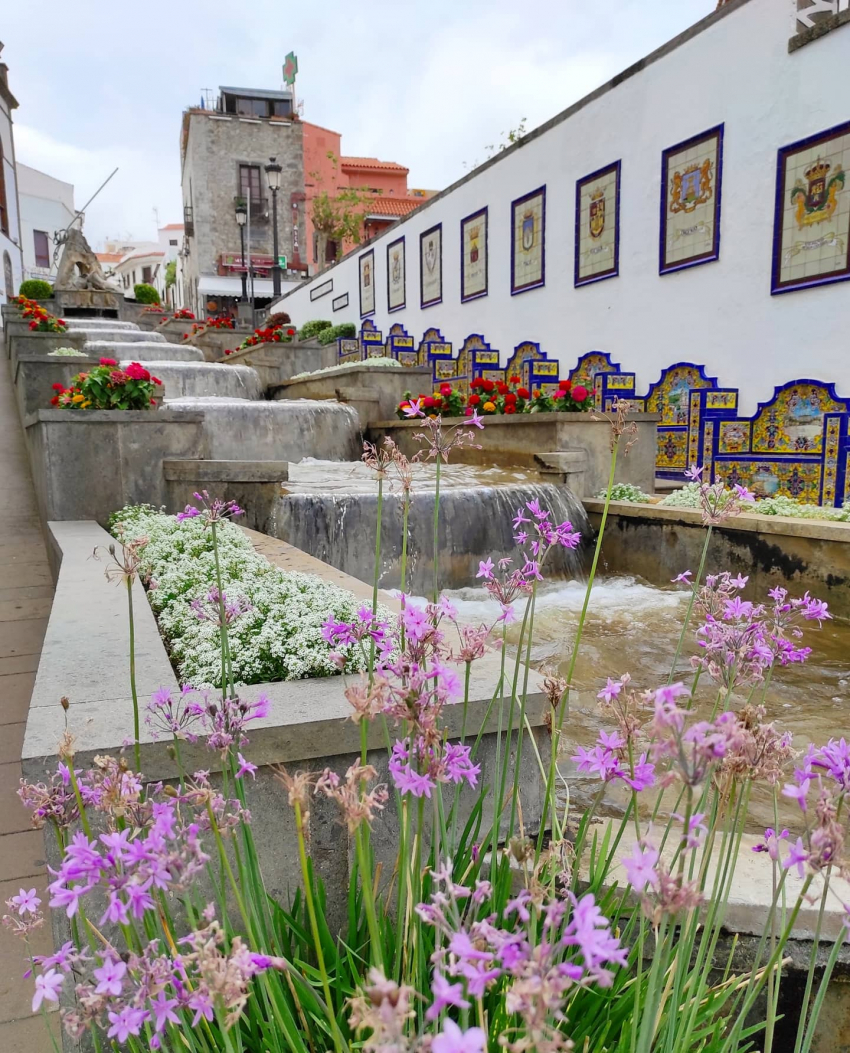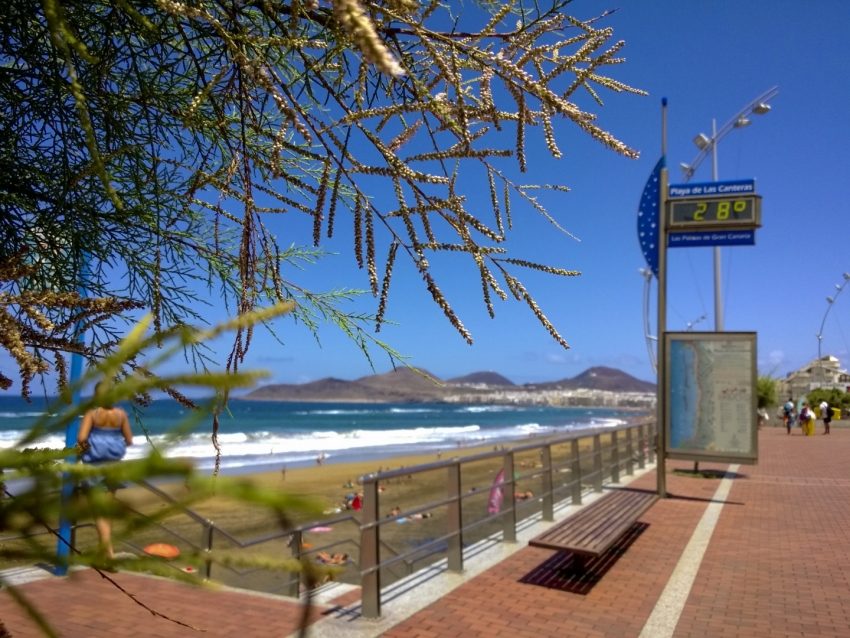Go Green In Firgas: Watercress And The Growing Call To Free The Water
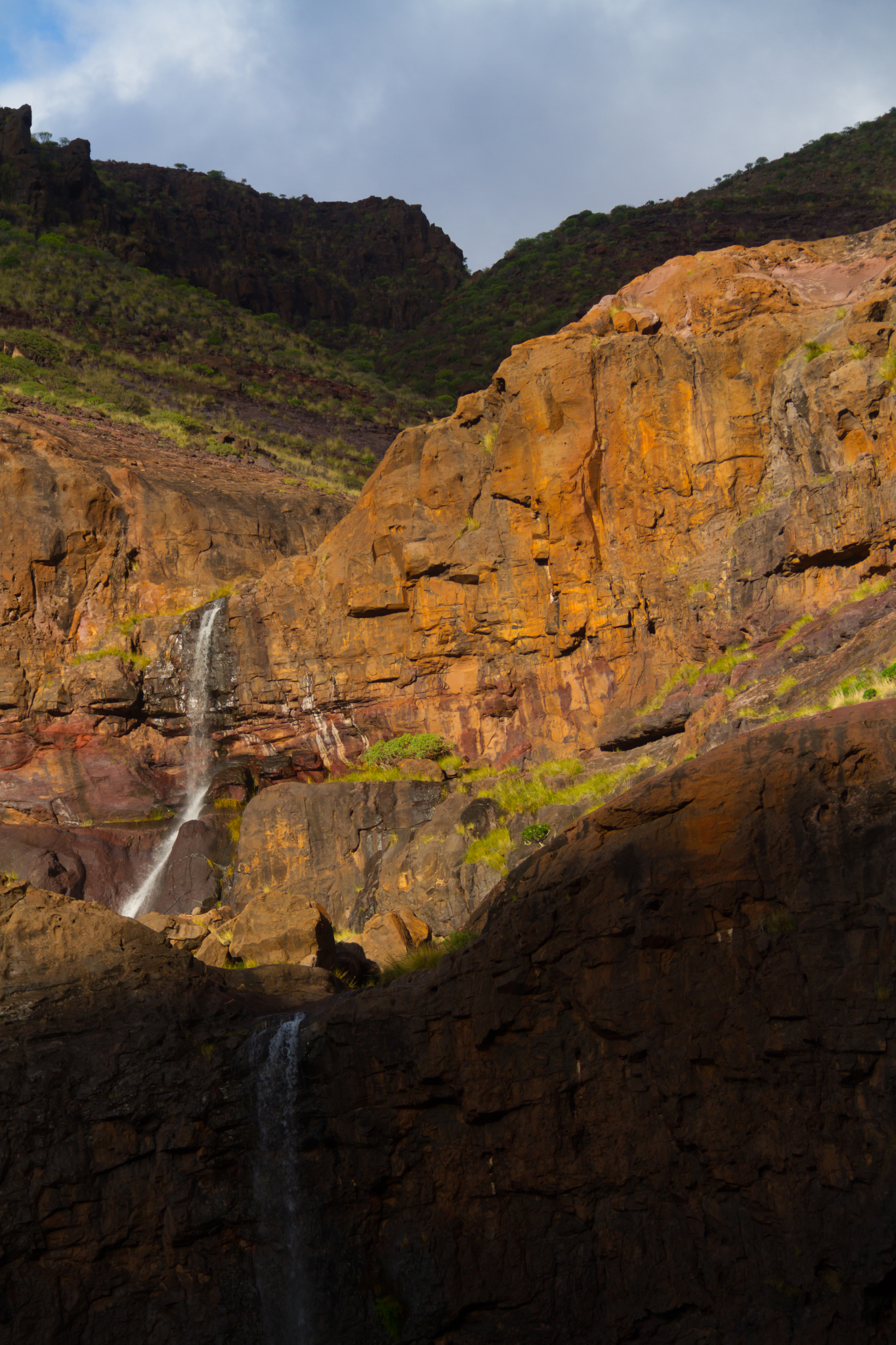 As you drive or walk around Gran Canaria you get the impresssion that it's a dry island because there is no water flowing in the valleys. However, this is an illusion as almost every barranco on the island should have a natural stream.
As you drive or walk around Gran Canaria you get the impresssion that it's a dry island because there is no water flowing in the valleys. However, this is an illusion as almost every barranco on the island should have a natural stream.
Before tourism, water was life in Gran Canaria. Vast networks of water channels carried it from natural springs and deep galleries carved into the island to where it was needed for drinking, washing clothes and watering crops. These stone waterways and aqueducts were built to last for centuries and managed communaly by the people they supplied. The washing points were meeting points for local commmunites and the flowing water kept valleys cool and allowed the island's birds to drink. The water was chanelled but still leaked out to keep palm groves watered.
 Nowadays most of the water runs through undergound pipes. The old water-sharing agreements have disappeared to be replaced with commercial contracts. Water no longer flows free and a shocking amount goes to irrigating unprofitable banana plantations that only make money thanks to huge subsidies.
Nowadays most of the water runs through undergound pipes. The old water-sharing agreements have disappeared to be replaced with commercial contracts. Water no longer flows free and a shocking amount goes to irrigating unprofitable banana plantations that only make money thanks to huge subsidies.
Palm trees all over the island, such as the Agaete Valley and Telde, have died in their hundreds and there are no streams to act as natural firebreaks during the summer.
Free the water: A common resource and vital for tourism
A growing number of local people are calling for change. Why does the island's water flow out of view? Why do a few people get to decide what it is used for? Why don't we put it back where it belongs; running free down the island's barrancos? Why do we spend a fortune keeping a few farmers in business when the money co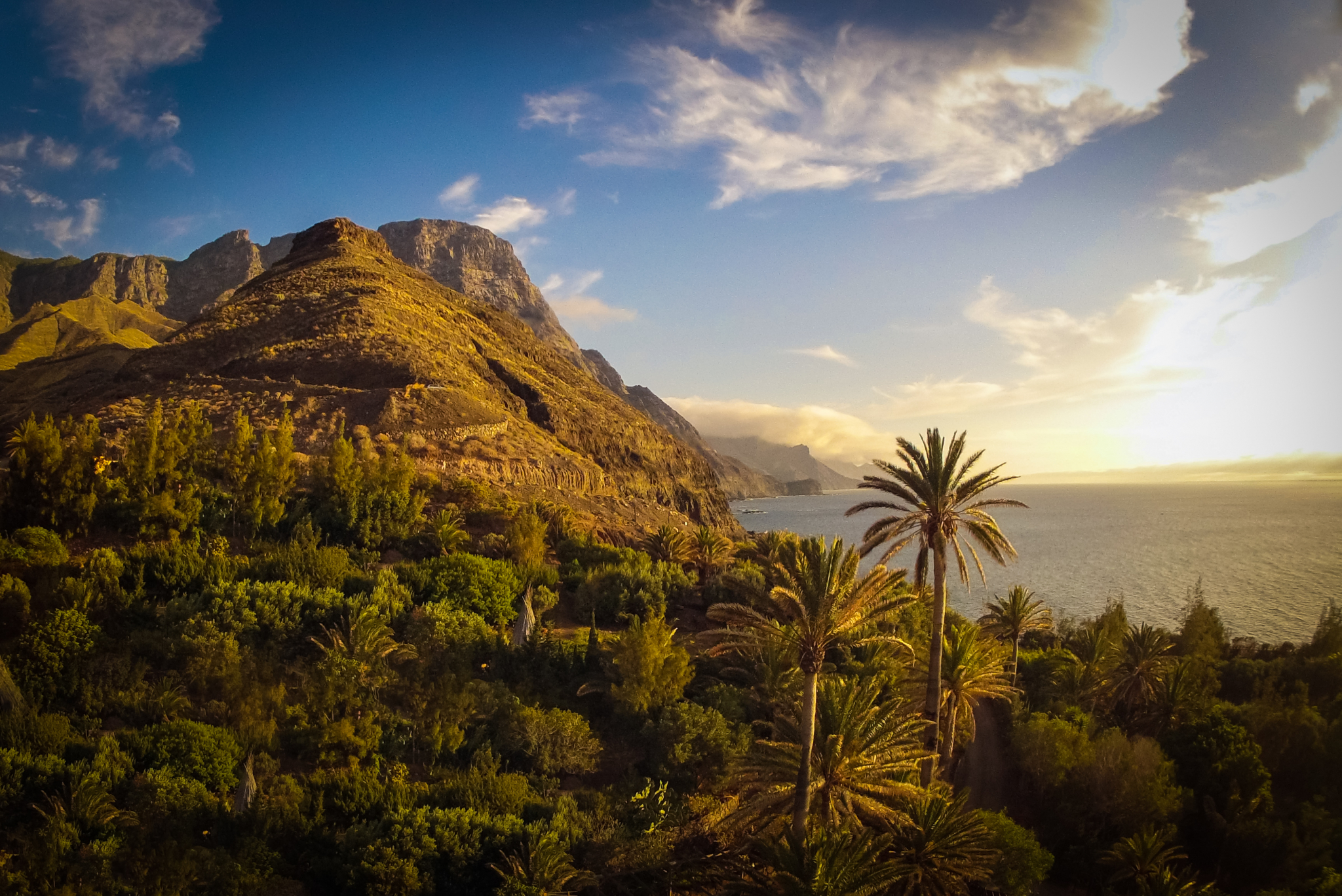 uld be spend on rewilding the island, replanting its forests and making Gran Canaria a more attractive place to live and to visit?
uld be spend on rewilding the island, replanting its forests and making Gran Canaria a more attractive place to live and to visit?
If Gran Canaria wants to be a more attractive place for walkers and visitors, putting the water back would be a good start. You only have to look at the popularity of the few places where free-flowing water remains; Azuaje, Barranco de los Cernicalos, Barranco de la Virgen up by Fontanales, and the water town of Firgas.
Firgas: Gran Canaria's water town
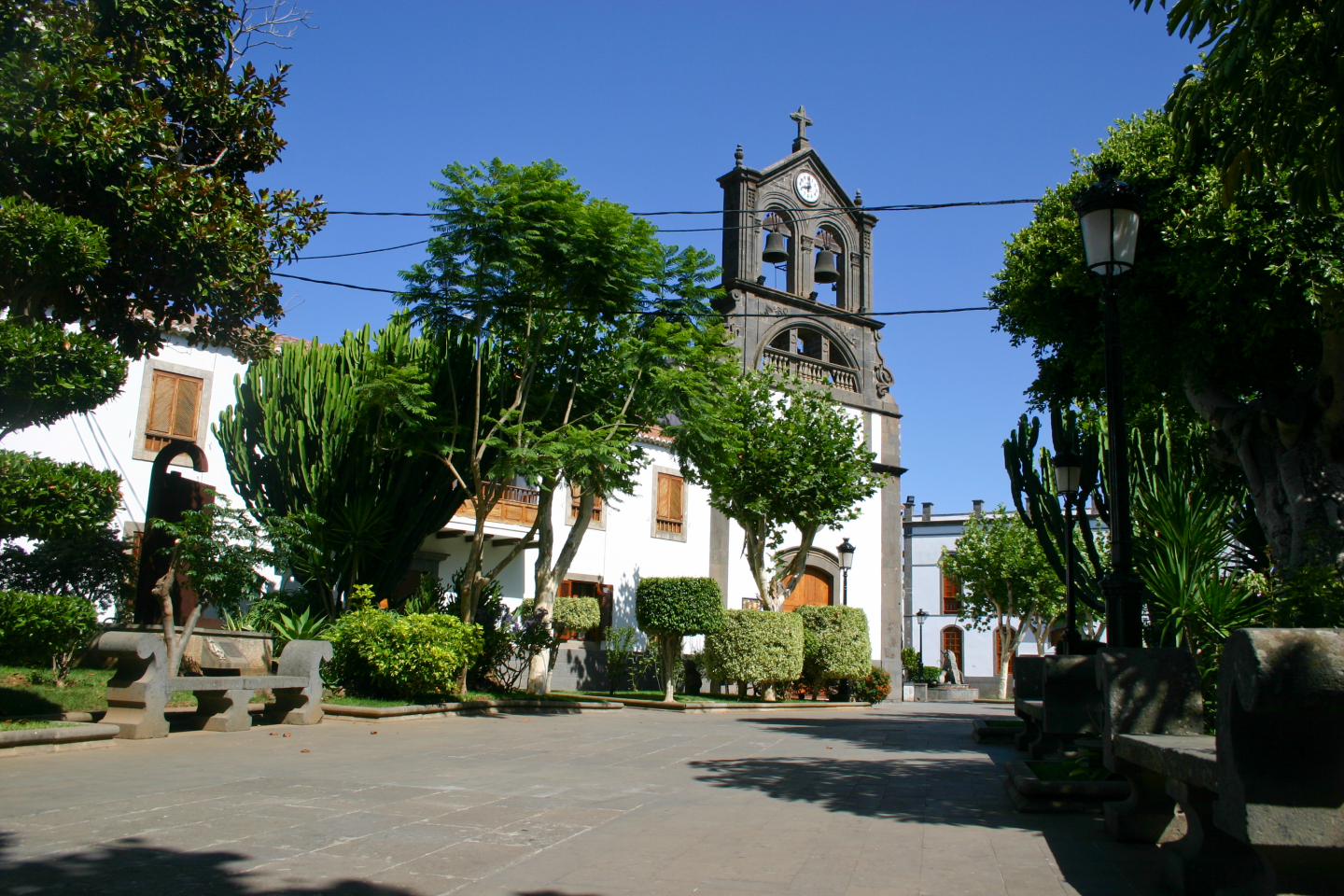 Firgas is the place in Gran Canaria that most visitors associate with water. The islands eponymous mineral water is bottled nearby and the main street in town has a flowing water feature. The old part of town is dotted with restored water mills, aqueducts and water channels.
Firgas is the place in Gran Canaria that most visitors associate with water. The islands eponymous mineral water is bottled nearby and the main street in town has a flowing water feature. The old part of town is dotted with restored water mills, aqueducts and water channels.
In the surrounding countryside, the main crop isn't bananas but watercress or berros, essential ingredient of one of Gran Canaria's most famous dishes; potaje de berros.
And where better to try it that in Firgas itself?
Any restaurant in or around town will serve you up a bowl of watercress, maize and pork soup, often sprinkled with gofio (toasted maize flour).
But one restaurant has upped its berros game beyond just potaje...
El Rincón de Marcos goes all in on the green stuff
El Rincón de Marcos, five minutes walk southwest of the Firgas church, puts watercress into everything. Green, pepperry bread, cress croquettes, green alioli, salads loaded with watercress, watercress soup, even a flan (creme caramel) with a greenish hue for dessert.
The potaje de berros, alioli and croquettas are excellent, as is the bread. The dessert and a couple of other green dishes are more about the novelty than anything else (does anyone re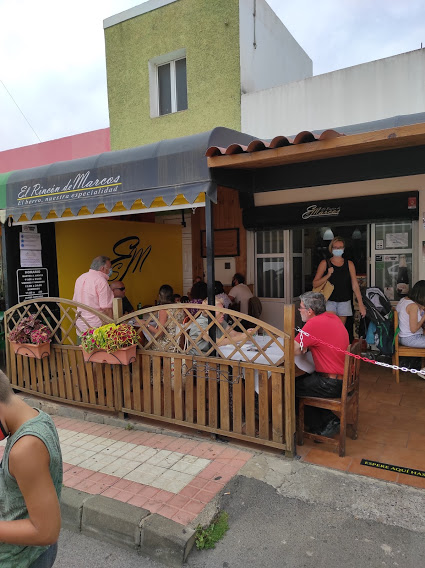 ally need a green flan?). It also serves plenty of non-watercress options like steak, calamares and papas arrugadas.
ally need a green flan?). It also serves plenty of non-watercress options like steak, calamares and papas arrugadas.
The restaurant itself is rustic with an outdoor terrace for warm days and cosy indoor rooms for the inevitable wet days. There's a reason why Firgas is famous for water; it's one of the island's rainiest spots.
Book el Rincón de Marcos if you plan to visit Firgas at the weekend but you should be fine just walking in on weekdays, especially if you turn up early (before 14.00).
1
Firgas town in north Gran Canaria is famous for water. The island's eponymous mineral water is bottled nearby, the main street has a waterfall, and the old part of town is dotted with restored mills and aqueducts.
Guía: The Gran Canaria Town Most Famous For Cheese
Sleepy Guía in north Gran Canaria is a spot that most people simply drive past. However, we've scoured its sleepy old quarter and found a few quality spots that make it worth parking up in town and wandering about. Oh, and you have to try the cheese.
Gran Canaria Weather: Is Las Palmas a Cloudy City?
Las Palmas has a reputation for being a cloudy city, but is also famous as the city with the world's most pleasant climate. What's going on?
Gran Canaria Beaches: Diving and Seafood at Sardina de Gáldar
World-class diving, great seafood and one of Gran Canaria's prettiest sandy beaches; Sardina de Gáldar is a Gran Canaria Info top spot.
Gran Canaria Info recommends:
- Default
- Title
- Date
- Random

